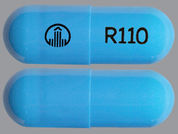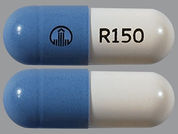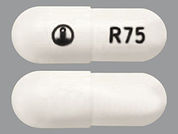Pradaxa
Dabigatran Etexilate Mesylate
What is Pradaxa used for?
This form of dabigatran is given to infants and children to treat blood clots in the veins of the legs (deep vein thrombosis) or lungs (pulmonary embolism) and to reduce the risk of them occurring again. Dabigatran is an anticoagulant that works by blocking certain clotting proteins in the blood. This helps to keep blood flowing smoothly in your child's body. Dabigatran should not be used to prevent blood clots from forming after artificial heart valve replacement. If your child had heart valve surgery, talk to the doctor about the best medication for your child.
CHEMICAL NAME
DRUG TYPE
AnticoagulantPradaxa Prices
Searching for the lowest prices
What does Pradaxa look like?
View all Pradaxa Image Information (3)Pradaxa Frequently Asked Questions
Do not stop dabigatran unless directed by your child's doctor. If you stop giving this medication early, your child has a higher risk of forming a serious blood clot (such as stroke, blood clot in the legs/lungs). The doctor may direct your child to take a different "blood thinning" or antiplatelet medication to reduce your child's risk. Get medical help right away if your child has weakness on one side of the body, trouble speaking, sudden vision changes, confusion, chest pain, trouble breathing, or pain/warmth/swelling in the legs.
People taking this medication may bleed near the spinal cord after certain spinal procedures. Bleeding in this area can cause paralysis that lasts a long time or could become permanent. Before any spinal procedure, ask the doctor about the benefits and risks. The risk of bleeding may be higher if your child has a deformed spine, or has had spinal procedures/surgery before (such as epidural catheter placement, difficult epidural/spinal puncture), or if your child is taking other drugs that can cause bleeding/bruising (including antiplatelet drugs such as clopidogrel, "blood thinners" such as warfarin/enoxaparin, nonsteroidal anti-inflammatory drugs-NSAIDs such as ibuprofen). Tell the doctor right away if you notice symptoms such as back pain, leg numbness/tingling/weakness, loss of control of the bowels or bladder (incontinence).
IMPORTANT: HOW TO USE THIS INFORMATION: This is a summary and does NOT have all possible information about this product. This information does not assure that this product is safe, effective, or appropriate for you. This information is not individual medical advice and does not substitute for the advice of your health care professional. Always ask your health care professional for complete information about this product and your specific health needs.


